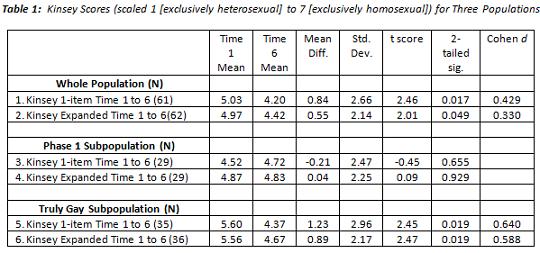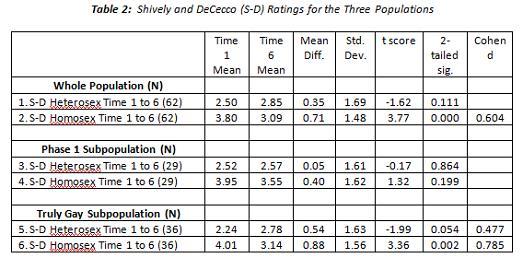This just in…
The Associated Press has a story on topic…
Focus on the Family’s conference on homosexuality joins Exodus’ expanding church outreach
Orlando, FL. — Focus on the Family’s Love Won Out conference on homosexuality will be moving to Exodus International starting November, the longtime allies announced today. The move is a logical step not only for both organizations, but also for a movement that has educated and equipped Christians for decades about the reality that unwanted same-sex attractions can be overcome.
Exodus is making church education a priority effort. Recently, Exodus announced it was merging with outreach ministries of the Presbyterian and Reformed faith communities as well as The United Methodist Church. Those new partnerships will focus on equipping churches with a biblical perspective of sexuality and gender – efforts critical in continuing the original mission of the Love Won Out conference.
“Exodus is thrilled with this opportunity as the Love Won Out conference is a natural fit in our ongoing efforts to share the hope we’ve found,” said Alan Chambers, President of Exodus International. “Love Won Out has been and will continue to be a powerful event dedicated to helping the global Christian church better understand and more effectively reflect biblical truth and Christ-like compassion to a hurting world.”
Focus on the Family launched Love Won Out in 1998 to educate and equip Christians on how to respond to the issue of homosexuality in a biblical way, and has traveled to more than 50 cities worldwide with its message of truth and grace. The conference has always featured Exodus speakers and highlighted Exodus member ministries.
“There is no one better equipped to take over the operation of Love Won Out than Alan and his team,” said Focus on the Family’s Melissa Fryrear, a Love Won Out speaker and host for more than six years. “They have been with us since the beginning. They have stood alongside us in sharing the hope that, with Christ, transformation is possible for those unhappy with same-sex attractions. And we will stand alongside them as they continue to share that message as the organizer of Love Won Out.”
Focus on the Family’s gender team will continue its efforts tracking and analyzing homosexuality and its surrounding issues, as well as providing expert support to other Focus departments and practical help to its constituents.
Gary Schneeberger, vice president of media and public relations for the ministry, acknowledged that financial realities played a role in the conference’s transition to Exodus.
“Everyone knows these are challenging times for organizations and individuals all across the globe,” he said. “It is not an inexpensive undertaking to put on a Love Won Out event; and contrary to what our detractors say, the conferences rarely have recouped the financial investment made in them. That is a cost we have always paid because of the positive impact the events have had.
“With Exodus moving aggressively to strengthen its church outreach, though, they are the ones who ought to be shepherding Love Won Out as it continues on in its second decade. Our financial challenges have led us to recognize a strategic opportunity that makes sense independent of economic circumstances.”
Focus on the Family will continue to support the Love Won Out conference financially, and by providing speakers and marketing support. “Focus remains very committed to sharing biblical view of homosexuality,” said Fryrear. “After all, we’re still in the truth and grace business.”
Focus on the Family will lead its last Love Won Out conference in Birmingham, Ala. on Nov. 7.
The Washington Blade already has a story up about the move.


